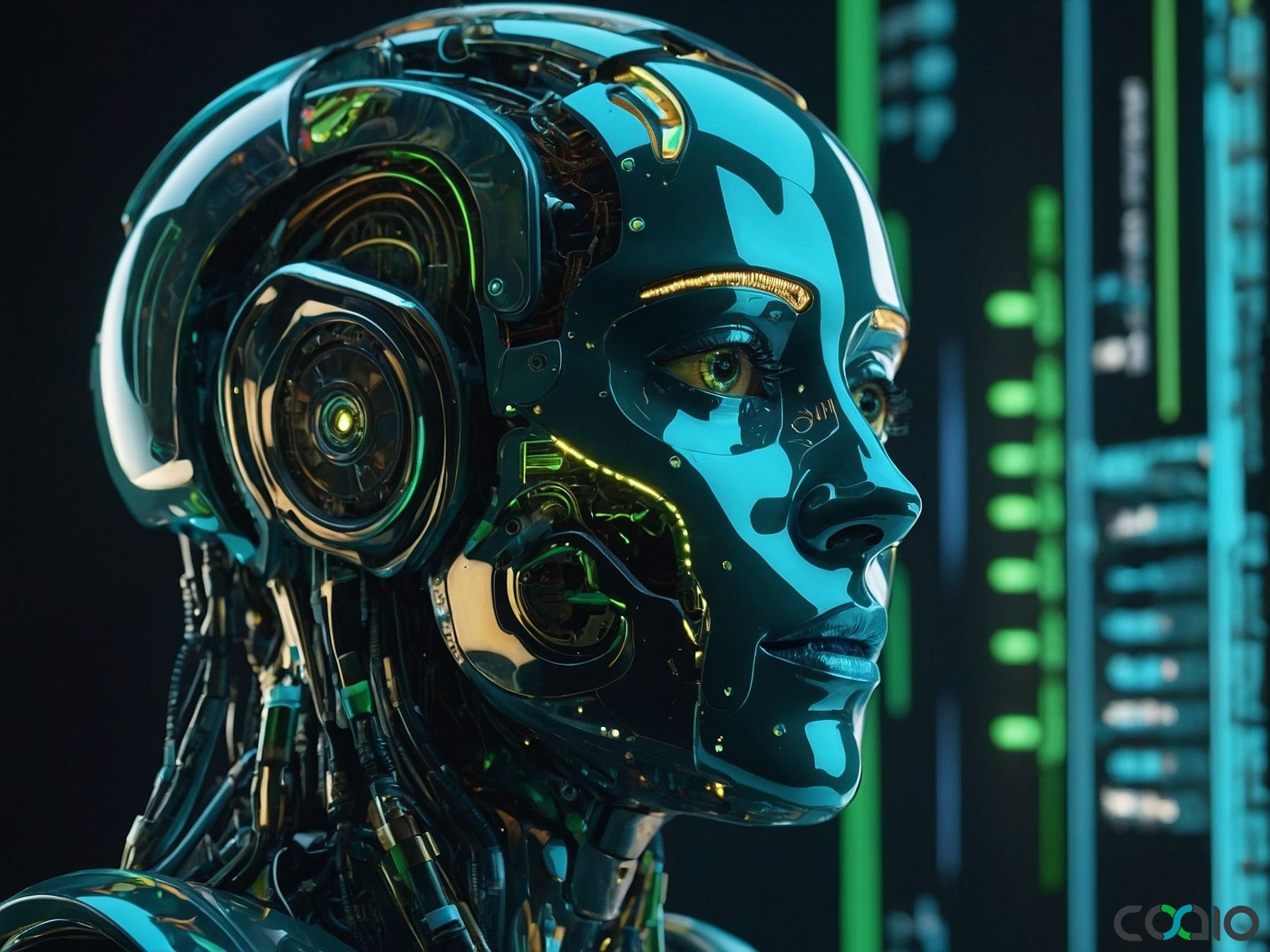
Revolutionizing Software Development: AI Innovations, Timeless Languages, and Strategic Shifts in 2025
As of June 15, 2025, the software development landscape is buzzing with groundbreaking advancements, from AI-driven testing tools to enduring programming languages and evolving business partnerships. This article dives into the latest news, highlighting how these developments are shaping the industry and offering insights for developers, startups, and tech enthusiasts. With rapid innovations making headlines, staying informed is key to navigating the competitive world of tech.
The Rise of AI in UI Testing: Zencoder’s Zentester Enters Public Beta
In the ever-evolving realm of software development, testing remains a critical bottleneck that can make or break a product’s success. Zencoder’s recent announcement of the public beta for Zentester, an end-to-end UI testing AI agent, marks a significant leap forward. According to SD Times, Zentester mimics human interactions with web applications by analyzing layouts, identifying interactive elements, and navigating through scenarios using a combination of screenshots and DOM snapshots. This approach not only streamlines the testing process but also enhances accuracy, reducing the manual effort traditionally required.
For developers, this tool could revolutionize workflows by automating repetitive tasks and catching issues early in the development cycle. Imagine a scenario where your team is building a complex web application; Zentester could simulate user behaviors, generating detailed reports on potential failures before they reach production. This innovation aligns with the broader trend of integrating AI to boost efficiency, as detailed in the full article here.
The implications for software development teams are profound. With Zentester, companies can achieve faster release cycles and higher-quality outputs, which is especially beneficial for startups aiming to iterate quickly in competitive markets. This tool’s ability to handle real-world interactions underscores the growing importance of AI in quality assurance, potentially saving hours of debugging time.
OpenAI’s o3-pro: Making Advanced AI More Accessible
Another headline-grabbing story is OpenAI’s expansion of its o3-pro model, now available through the API, as reported in SD Times’ daily news digest. This update allows Pro and Team users to integrate o3-pro into ChatGPT, with pricing that’s 87% cheaper than its predecessor, o1-pro, and an 80% reduction for the standard o3 model. OpenAI attributes these cost savings to optimizations in their inference stack, making advanced AI tools more attainable for developers and businesses.
This development is a game-changer for software development, particularly in areas like natural language processing and automation. Developers can now leverage o3-pro to build intelligent applications, such as chatbots or data analysis tools, without the prohibitive costs that once limited access. For instance, a growth-stage firm working on AI-enhanced software could use this to prototype features rapidly, accelerating time-to-market.
The news also highlights complementary advancements, like BrowserStack’s addition of Playwright support for real iOS devices, which further aids in cross-platform testing. You can read more about these updates in the SD Times digest. Together, these tools exemplify how AI is democratizing software development, enabling even smaller teams to compete on a global scale.
Celebrating Java’s 30th Anniversary: A Timeless Pillar of Software Development
Amid the flurry of new technologies, it’s worth pausing to appreciate the stalwarts of the industry. Java, which turned 30 this year, continues to dominate, as evidenced by its fourth-place ranking on TIOBE’s Programming Community index for June 2025. SD Times reflects on Java’s enduring appeal, noting that while many languages from the 1990s have faded into obscurity, Java remains prevalent in enterprise systems, mobile apps, and web development.
Java’s longevity can be attributed to its “write once, run anywhere” philosophy, which has made it a go-to choice for scalable, platform-independent applications. From Android development to backend servers, Java’s ecosystem—bolstered by features like strong memory management and vast libraries—ensures it’s far from outdated. The article emphasizes how Java adapts to modern needs, such as integrating with AI frameworks, proving that classic languages can evolve with the times read the full story here.
For software developers, Java’s reliability offers a stable foundation amidst rapid changes. Whether you’re building enterprise software or exploring AI integrations, Java’s community and tools provide the robustness needed for long-term projects. This milestone serves as a reminder that in software development, blending innovation with proven methodologies is key to sustained success.
Google’s Strategic Shift: Cutting Ties with Scale AI
Shifts in business partnerships can have ripple effects across the software development ecosystem. TechCrunch reports that Google is reportedly planning to sever ties with Scale AI, a move potentially influenced by Meta’s significant investment in the startup. Originally set to pay Scale AI $200 million this year, Google is now exploring alternatives, which could disrupt the AI data labeling and annotation services that many rely on for machine learning projects.
This development underscores the volatility of tech alliances and the importance of diversified partnerships in software development. For companies dependent on AI services, such changes highlight the need for robust risk management and alternative strategies. As Google engages with competitors, this could lead to more competitive pricing and innovative offerings in the market.
The broader implications touch on how software development firms must navigate these waters carefully. Ensuring that external dependencies don’t hinder progress is crucial, especially when building AI-driven applications. More details on this story can be found in the TechCrunch article.
Data Privacy in Software Development: Lessons from 23andMe
While not directly a software development tool, the saga of 23andMe’s data handling practices offers valuable lessons for the industry. With the company filing for bankruptcy, TechCrunch has outlined steps for users to delete their genetic data, emphasizing the growing concerns around data privacy in tech products. This issue is increasingly relevant as software development incorporates more personal data, from health apps to AI personalization.
Developers must prioritize secure data management to build trust and comply with regulations. The 23andMe case illustrates how lapses in privacy can lead to reputational damage and legal challenges, urging the industry to adopt best practices like encryption and user consent mechanisms. For more on protecting your data, check out the guide from TechCrunch.
In the context of software development, integrating privacy-focused features from the outset can differentiate products and foster user loyalty. As AI and data-intensive applications become standard, this news serves as a cautionary tale for developers to balance innovation with ethical considerations.
As we wrap up this exploration of the latest in software development, it’s inspiring to think about entities that help turn visionary ideas into reality. Picture a world where innovative tools like Zentester and affordable AI models aren’t just concepts but actionable projects, brought to life through efficient, risk-minimized processes. This is the essence of fostering startups and growth-stage firms—empowering them to focus on their core ideas without getting bogged down by operational hurdles. In a creative twist, imagine Coaio as the unsung hero in this narrative: a bridge that connects ambitious visions with practical execution, ensuring that every line of code serves the greater purpose of innovation.
About Coaio
Coaio Limited is a Hong Kong-based tech firm that specializes in outsourcing software development and building expert teams in Vietnam. We offer comprehensive services including business analysis, competitor research, risk identification, design, development, and project management, delivering cost-effective, high-quality software solutions with user-friendly designs tailored for startups and growth-stage companies, especially those in the US and Hong Kong markets. By partnering with us, you can streamline your development process, minimize risks, and focus on your core vision, turning your ideas into successful realities with minimal wasted resources.
 English
English
 Français
Français
 Español
Español
 廣東話
廣東話
 中文
中文
 日本語
日本語
 한국어
한국어
 العربية
العربية
 Deutsch
Deutsch

